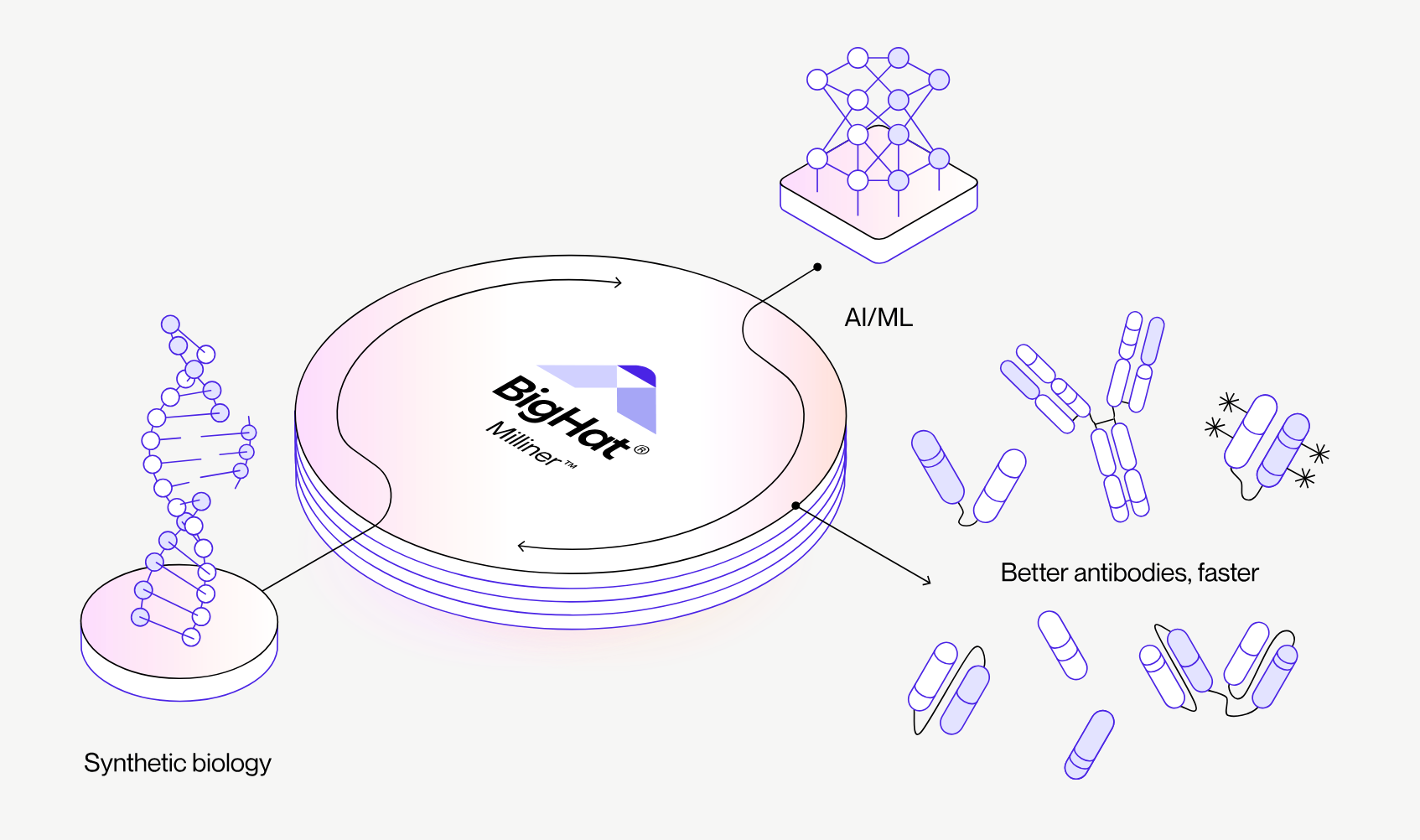BigHat Introduces AI Platform for Antibody Design and Optimization
BigHat Biosciences, headquartered in San Mateo, California, has unveiled the Reccy Antibody Design Studio (RADS), a fully integrated platform combining machine learning with high-throughput experimental validation for antibody development. The system is designed to accelerate the discovery and optimization of therapeutic antibodies by linking AI-driven design loops with automated laboratory workflows.
RADS integrates BigHat’s Milliner high-speed wet lab with Reccy, BigHat’s custom LIMS++ that manages instrumentation, robotic workflows, data processing, and model training. The platform continuously updates and benchmarks thousands of models trained on proprietary antibody datasets, enabling iterative design-build-test cycles. Each week, the system trains a set of models on the most recent data, selects the best-performing approach, and applies it to generate the next round of antibody candidates.
BigHat Biosciences developed the Milliner platform to address the complexity of designing clinical-grade antibodies. The platform integrates a synthetic biology-based automated wet lab with machine learning to run rapid design-build-test cycles. Starting with seed antibodies from computational design, partner libraries, or prior discovery efforts, Milliner’s models reportedly generate hundreds of variants each cycle, which are synthesized and evaluated for biophysical and functional properties such as binding affinity, solubility, stability, and disease activity in cell-based assays. Data from each round are fed back into the models to refine predictions, accelerating the identification of optimized therapeutic candidates.

Image credit: BigHat
The Milliner workcell is capable of producing and characterizing hundreds of recombinant antibodies each week using tools such as DNA synthesis, cell-free protein expression, and automated purification. All candidates undergo standardized assays to screen for purity, yield, developability liabilities, and functional activity. Since its introduction in 2019, Milliner has reportedly processed tens of thousands of antibody designs across hundreds of iterative rounds, with applications extending from conventional antibodies to VHHs, multispecifics, conjugates, and other therapeutic proteins.
According to BigHat, RADS provides a framework for optimizing antibodies across different therapeutic properties and disease indications. It supports plug-and-play integration of external models and assays through an API, while maintaining scalability through automated data pipelines and quality control. By connecting computational design with experimental characterization, RADS is intended to streamline the process of moving antibody candidates from discovery through clinical development.
We track updates like this weekly in Where Tech Meets Bio—our newsletter on startups, platforms, and deals at the intersection of biotech and digital.
Topic: AI in Bio